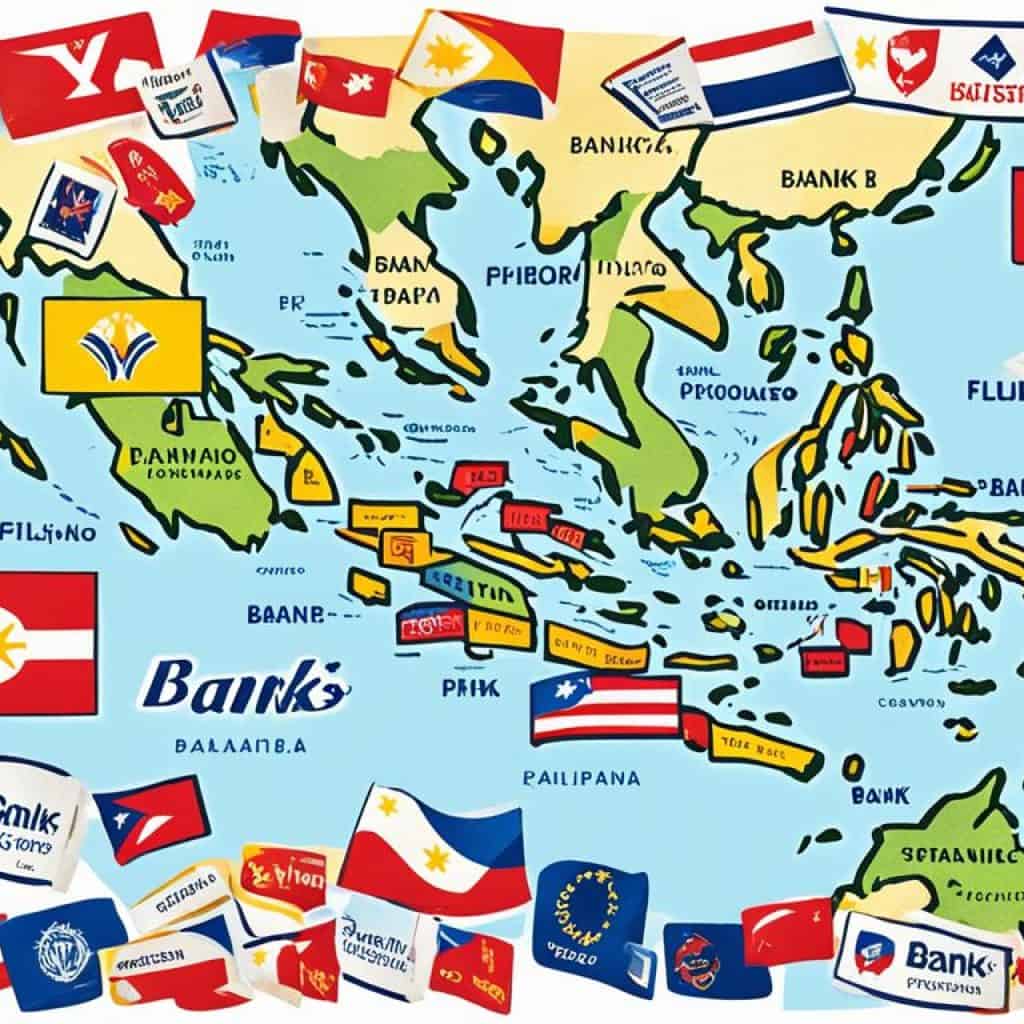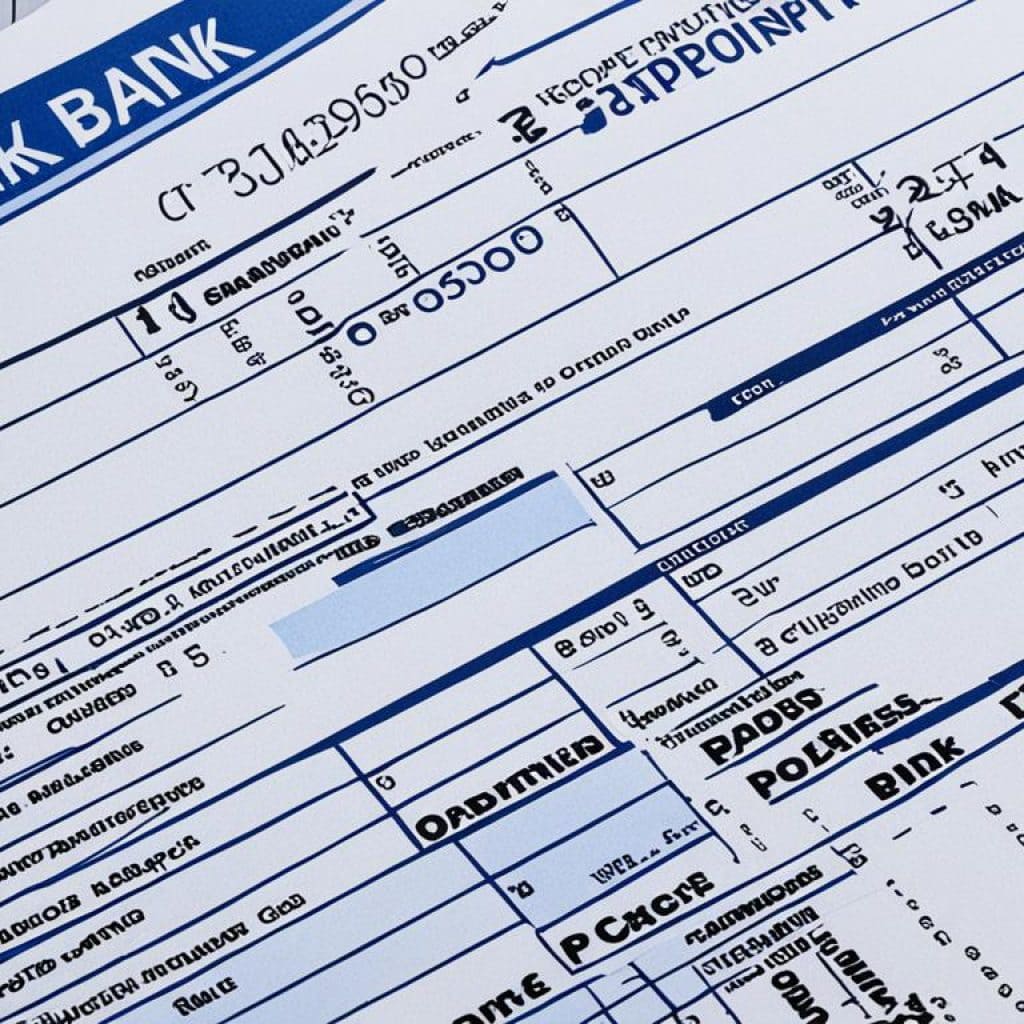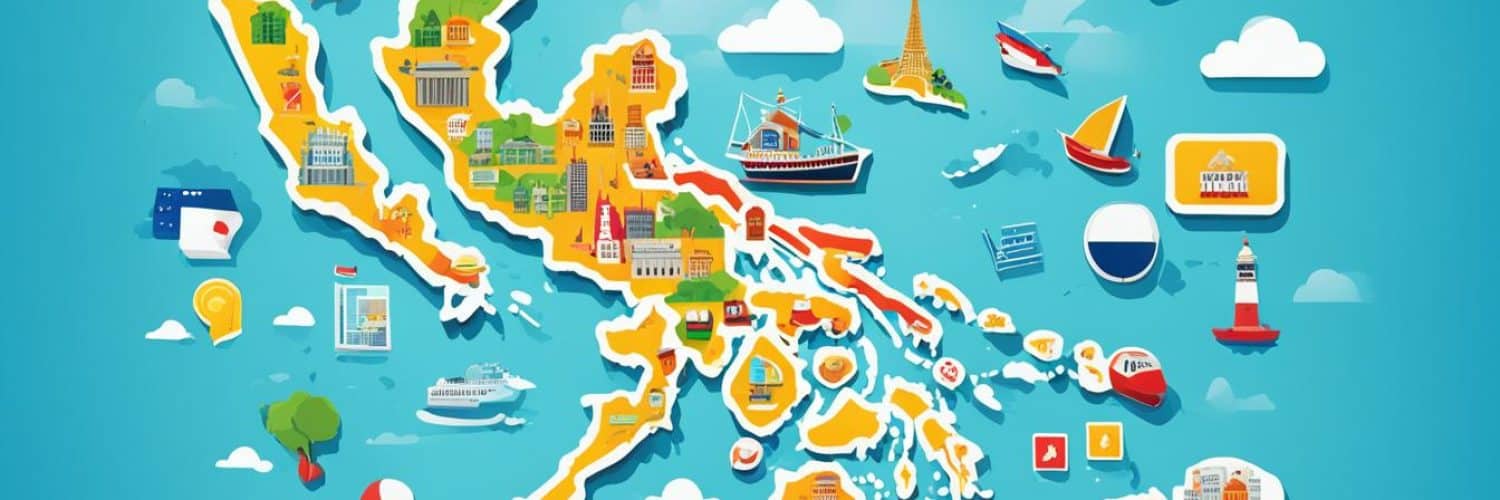Are you looking for the top banks in the Philippines? Want to know which banking institutions are the best in the country? Curious about the major players in the Philippine commercial banking industry? In this comprehensive guide, we will delve into the world of Philippine banks, from the leading names to the biggest institutions. Discover the top 10 banks in the Philippines and gain insights into their services, offerings, and reputation. Get ready to explore the diverse banking landscape of the Philippines and find your ideal financial partner.
Key Takeaways:
- The banking system in the Philippines encompasses a variety of types of banks, including universal, commercial, thrift, rural, cooperative, Islamic, and digital banks.
- Foreign banks can establish a presence in the Philippines through acquisition, banking subsidiaries, or branch openings, subject to licensing and regulatory requirements.
- To open a bank account in the Philippines, individuals must meet certain requirements, including valid ID, proof of address, and a minimum initial deposit.
- Recommended banks in the Philippines for foreigners include BDO Bank, Metrobank, Landbank, and BPI, which offer extensive services and international presence.
- For an alternative banking solution, Wise provides a non-bank option with multi-currency accounts, digital services, and low fees for international transactions.
Classification of Banks in the Philippines
Banks in the Philippines are classified into different types based on their functions and services. Understanding the classification of banks can help individuals and businesses choose the right institution to meet their financial needs and preferences.
1. Universal Banks
Universal banks in the Philippines are financial institutions that offer a wide range of banking services, including commercial banking, investment banking, and trust services. They have the authority to engage in a variety of financial activities and are often the largest and most influential banks in the country. Universal banks play a crucial role in driving the economy and catering to the diverse needs of individuals, businesses, and corporations.
2. Commercial Banks
Commercial banks in the Philippines primarily focus on providing banking services to individuals and businesses. They offer various products and services, including checking accounts, savings accounts, loans, credit cards, and trade financing. Commercial banks are the go-to choice for day-to-day banking needs and are widely accessible with branch networks and ATM services throughout the country.
3. Thrift Banks
Thrift banks are smaller financial institutions that cater to the needs of smaller depositors and borrowers. They focus on promoting savings and providing affordable loans to individuals and small businesses. Thrift banks offer services like regular savings accounts, time deposits, consumer loans, and housing loans. These banks are regulated by the Bangko Sentral ng Pilipinas (BSP) and contribute to financial inclusion by reaching out to underserved markets.
4. Rural Banks
Rural banks play a crucial role in serving the banking needs of rural communities in the Philippines. They provide access to basic banking services, such as savings accounts, loans, remittances, and agricultural financing. Rural banks play a vital role in supporting agricultural activities and strengthening the rural economy.
5. Cooperative Banks
Cooperative banks in the Philippines are owned and operated by cooperatives. These banks emphasize cooperative principles, mutual assistance, and community development. Cooperative banks focus on providing financial services to their members, who are also the owners of the bank. Services offered include savings accounts, loans, and other financial assistance to support cooperative members and their businesses.
6. Islamic Banks
Islamic banks in the Philippines adhere to Islamic principles and offer financial services that are compliant with Shariah law. These banks provide products and services that are interest-free and conform to Islamic ethical and moral values. Islamic banks offer a range of services, including deposit accounts, financing solutions, and wealth management options that are in line with Islamic financial principles.
7. Digital Banks
Digital banks are a relatively new type of bank in the Philippines that operates primarily online, providing convenience, accessibility, and digital banking solutions. These banks utilize technology and innovative platforms to offer a variety of banking services, such as online account opening, fund transfers, bill payments, and cardless ATM withdrawals. Digital banks aim to enhance customer experience through seamless and user-friendly digital platforms.
Understanding the classification of banks in the Philippines empowers individuals and businesses to make informed decisions when selecting a bank that aligns with their financial goals and needs. Each type of bank offers unique features and services, catering to different segments of the population. Whether it’s the comprehensive services of universal banks, the accessibility of commercial banks, or the specialized offerings of digital banks, there is a bank to suit every financial requirement.
Establishing Banks in the Philippines
The establishment of banks in the Philippines requires compliance with the licensing framework set by the Bangko Sentral ng Pilipinas (BSP). This framework evaluates various factors, including ownership transparency, suitability of shareholders, fitness and propriety of directors and senior management, capital adequacy, and adherence to anti-money laundering and terrorism financing regulations.
Foreign banks can enter the Philippine banking system through different avenues, such as acquisition, establishing new banking subsidiaries, or opening branches with full banking authority. The selection criteria for foreign banks take into account geographic representation, strategic trade and investment relationships, capacity and stability, reciprocity rights, willingness to share banking technology, and financial soundness.
In terms of ownership structure, banks must meet requirements for widely-owned and publicly-listed status. This ensures transparency and accountability in the banking sector. The establishment process involves submitting the necessary documentary requirements and complying with relevant regulations set by the BSP.
Selection Criteria for Foreign Banks:
- Geographic representation
- Strategic trade and investment relationships
- Capacity and stability
- Reciprocity rights
- Willingness to share banking technology
- Financial soundness
Documentary Requirements for Establishing Banks:
- Completed application form
- Articles of Incorporation and By-Laws
- Proof of capitalization
- List of shareholders and their suitability
- Identification documents of directors and officers
- Anti-money laundering and terrorism financing compliance program
By following the proper procedures and meeting the necessary criteria, foreign banks can establish their presence in the dynamic and growing banking sector of the Philippines.
Requirements for Opening a Bank Account in the Philippines
To open a bank account in the Philippines, you need to fulfill certain requirements. These requirements ensure that the bank can verify your identity and address, as well as comply with regulatory guidelines. Here are the key requirements to keep in mind:
- Valid ID: You will need to present a valid ID with a clear photo and information. Accepted forms of ID include a passport or driver’s license.
- Foreign Nationals: If you are a foreign national, you may be required to provide additional documentation, such as the Alien Certificate of Registration (ACR) I-Card or Immigrant Certification of Registration (ICR).
- Proof of Address: You must provide proof of your current address. This can be a utility bill or a residential lease contract in your name.
- Bank Reference: If you are referred by a bank employee or client, a bank reference from your home country may be required.
- Minimum Initial Deposit: Each bank sets a minimum initial deposit requirement. The amount varies depending on the bank and the type of account you wish to open. It is advisable to check with the specific bank for the minimum deposit amount.
Meeting these requirements will ensure a smooth and efficient process when opening a bank account in the Philippines.
| Requirement | Description |
|---|---|
| Valid ID | Present a valid ID with a clear photo and information, such as a passport or driver’s license. |
| Foreign Nationals | Provide additional documentation, such as the Alien Certificate of Registration (ACR) I-Card or Immigrant Certification of Registration (ICR). |
| Proof of Address | Submit proof of your current address, such as a utility bill or residential lease contract. |
| Bank Reference | If referred by a bank employee or client, a bank reference from your home country may be required. |
| Minimum Initial Deposit | The bank sets a minimum initial deposit requirement, which varies depending on the bank and account type. |
Recommended Banks in the Philippines for Foreigners
When it comes to banking in the Philippines, foreigners should consider opting for large national banks or international banks with a wide network and comprehensive services. These recommended banks provide a range of financial solutions, making it easier for foreigners to manage their finances effectively.
Some of the top recommended banks for foreigners in the Philippines include:
- BDO Bank: BDO Bank is one of the largest banks in the Philippines, offering a wide range of banking products and services. With numerous branches and ATMs nationwide, BDO Bank provides easy accessibility for foreigners.
- Metrobank: Metrobank is another prominent bank in the Philippines that caters to the needs of foreigners. As an international bank, Metrobank provides a host of services, including multi-currency accounts and remittance options.
- Landbank: Landbank is a government-owned bank that offers specialized services for foreigners. With a strong presence in the Philippines, Landbank provides various account types and convenient banking solutions.
- BPI: BPI (Bank of the Philippine Islands) is one of the oldest and most trusted banks in the country. It offers a wide range of banking services to foreigners, from basic savings and checking accounts to investment opportunities.
These recommended banks have built a strong reputation and have extensive networks, both domestically and internationally. They provide a wide range of account options, including savings accounts, checking accounts, and fixed-term deposit accounts. Additionally, these banks offer convenient services for remittances and multi-currency transactions, making banking hassle-free for foreigners.
It is essential for foreigners to choose a bank that meets their specific financial needs and offers reliable services. By considering these recommended banks in the Philippines, foreigners can have peace of mind knowing that their banking needs will be well taken care of.

Opening a Bank Account from Abroad as a US Citizen
Opening a bank account in the Philippines from abroad as a US citizen can be a challenging process. Typically, non-residents are required to be physically present in the country to open a bank account. However, some banks may offer the option to open an account from abroad, although this is usually limited to Filipino citizens.
If opening an account from abroad is possible, there are certain documentation requirements that need to be fulfilled. The necessary documents are similar to opening an account in person and may include:
It is important to note that the specific requirements may vary depending on the bank. Therefore, it is advisable to check with the bank or refer to their website for the most accurate and up-to-date information.
Opening a bank account from abroad as a US citizen may require additional steps and documentation. It is recommended to contact the bank directly to inquire about their specific requirements and procedures for non-resident account opening.
Opening a Bank Account as a Non-Resident Foreigner in the Philippines
For non-resident foreigners, opening a bank account in the Philippines can be a bit challenging. Most banks have policies that require proof of address in the country to open a standard account. However, it’s important to note that these policies may vary among different banks, and there may be exceptions or alternatives available.
If you are a non-resident foreigner looking to open a bank account in the Philippines, it’s worth checking with specific banks to see if they have any options available for you. While the requirements may be similar to opening an account in person, additional meetings with the bank manager may be required to discuss your personal circumstances and explore possible solutions.
It’s also important to consider alternative banking options, such as digital banks or non-bank financial platforms, that may have more flexible policies for non-resident foreigners. These platforms often offer convenient and accessible banking services that cater to individuals with international financial needs.
Documents Required to Open a Bank Account in the Philippines
When it comes to opening a bank account in the Philippines, there are certain documents that you will need to provide. While the specific requirements may vary depending on the bank you choose, here are some common documents that are typically required:
- A completed application form: This form will ask for basic personal information such as your name, address, date of birth, and contact details. It is important to fill out this form accurately and legibly.
- Two forms of photo ID: You will need to present two valid forms of photo identification. This could include your passport, driver’s license, or any other government-issued ID that contains your photo and personal information.
- Two ID pictures: Most banks will require you to provide two recent ID pictures for identification purposes. These pictures should meet the bank’s specifications in terms of size and format.
- Proof of address: You will need to provide proof of your residential address. This can be in the form of a utility bill, lease agreement, or any other document that clearly shows your name and address.
- Minimum initial deposit: Most banks in the Philippines require a minimum initial deposit to open a bank account. The specific amount may vary depending on the type of account you choose and the bank’s policies. It is important to inquire about this minimum deposit requirement beforehand.
It is crucial to note that these documents are a general guideline, and different banks may have additional requirements or variations in their documentation process. It is advisable to check with the specific bank or refer to their website for the most accurate and up-to-date information.

Opening a bank account in the Philippines is a straightforward process if you have all the necessary documents in order. By ensuring that you come prepared with the required paperwork, you can start enjoying the benefits of having a local bank account, such as easy access to financial services and convenient transactions.
Banking Fees and Charges in the Philippines
Before opening a bank account in the Philippines, it is important to carefully review the terms and conditions, especially those related to banking fees and charges. Familiarizing yourself with these fees will help you make informed decisions and avoid any surprises down the line.
Account Handling Fees:
Many banks charge account handling fees to cover the costs of maintaining and managing your account. These fees can vary depending on the type of account and the services offered. Be sure to inquire about any account handling fees when choosing a bank.
Card Fees:
If you plan to use a debit or credit card, it’s essential to understand the associated fees. Some banks charge an annual fee for card issuance or renewal, while others may impose transaction fees for certain types of payments or withdrawals. Knowing these fees in advance will help you budget accordingly.
ATM Withdrawal Fees:
When using an ATM to withdraw cash, keep in mind that there may be fees involved. Some banks charge a fee for withdrawing cash from ATMs of other banks, especially if the ATM is not within their network. It is advisable to choose a bank that offers a wide ATM network to minimize these fees.
Understanding the structure of charges and fees is crucial to managing your account effectively and avoiding unnecessary costs. It is recommended to ask your chosen bank for a detailed breakdown of all applicable fees before finalizing your account opening.
Wise: A Non-Bank Alternative for Banking in the Philippines
Looking for a banking alternative in the Philippines? Wise offers a wise choice. As a non-bank financial institution, Wise provides a multi-currency digital account, giving you the flexibility to hold and exchange multiple currencies, including PHP. Say goodbye to the limitations of traditional banks and enjoy the convenience of Wise’s modern banking services.
Operating as a registered Money Service Business, Wise offers a range of convenient services, making your financial transactions a breeze. From international payments to currency exchange at mid-market rates, Wise ensures your money goes further. And with low fees, you can save more while enjoying the benefits of seamless banking.
Whether you’re a frequent traveler, an expat, or simply seeking a more streamlined banking experience, Wise provides the perfect solution. With their digital account, you can manage your finances with ease. Experience hassle-free banking and say hello to the future of financial services with Wise.

“Wise offers a convenient and cost-effective way to manage your finances and perform banking transactions in the Philippines. Their multi-currency account and digital banking services make Wise a smart choice for individuals and businesses alike.”
Benefits of Wise's Non-Bank Alternative
- Access to a multi-currency account, allowing you to hold and transact in different currencies, including PHP.
- Convenient digital banking services that can be accessed anytime, anywhere.
- International payments made easy, with low fees and competitive exchange rates.
- Currency exchange at mid-market rates, ensuring transparency and fairness in your transactions.
- A user-friendly platform that simplifies your banking experience.
Don’t limit yourself to traditional banking services. Embrace the future of finance with Wise and discover a whole new way to manage your money.
Processing Timelines for Opening a Bank Account in the Philippines
Opening a bank account in the Philippines involves several stages that adhere to specific processing timelines. It is essential to understand these timelines to plan your banking requirements effectively. Let’s explore the stages and their respective timelines:
Stage 1: Submission of the Application for BSP Approval
This initial stage requires the submission of the application for approval from the Bangko Sentral ng Pilipinas (BSP). The BSP assesses the application within an average processing time of approximately 20 working days.
Stage 2: Issuance of the Certificate of Authority (COA)
After receiving approval from the BSP, the next stage entails the issuance of a Certificate of Authority (COA) by the Securities and Exchange Commission (SEC). The COA allows you to register the Articles of Incorporation (AOI) and/or By-Laws (BL). This process typically takes about 15 working days to complete.
Stage 3: Application for COA to Operate the Bank
The final stage involves applying for the COA to operate the bank. This application is submitted to the Bangko Sentral ng Pilipinas (BSP) and is usually processed within approximately 5 working days.
Throughout the different stages, a provisional receipt is issued upon the completion of each stage, providing a tangible record of progress and ensuring transparency in the process.
By understanding the timelines involved in opening a bank account in the Philippines, you can effectively plan your banking activities and have a clearer understanding of the overall process.
Representative Offices and Offshore Banking Units in the Philippines
Foreign banks looking to establish a presence in the Philippines have the option to operate through representative offices or offshore banking units. These avenues allow foreign banks to provide specialized services in the country. To proceed with these options, foreign banks must comply with the documentation requirements outlined in the Manual of Regulations on Foreign Exchange Transactions (FX Manual) and Circular Letter No. CL-2009-042. It is essential for foreign banks interested in these opportunities to thoroughly review the relevant regulations and ensure compliance with the necessary requirements.
Conclusion
In conclusion, the Philippines offers a diverse range of banking institutions to cater to the needs of individuals and businesses. Whether you’re looking for a traditional commercial bank or a modern digital bank, there is a wide selection to choose from. When making a decision, it is crucial to consider factors such as the services offered, accessibility, and reputation of the bank.
Exploring the top banks in the Philippines, such as BDO Bank, Metrobank, Landbank, and BPI, can be a good starting point. These major banks are known for their extensive branch and ATM networks, offering various types of accounts and services to meet your financial requirements.
Additionally, alternative options like Wise provide a convenient and cost-effective way to manage finances and perform international transactions. With a Wise account, you can benefit from a multi-currency platform that allows you to hold and exchange multiple currencies, including the Philippine Peso. This can be particularly advantageous for foreigners or individuals with international financial needs.
Overall, by taking the time to research and explore the different banking institutions in the Philippines, you can find the best bank to meet your specific needs. Whether you prioritize accessibility, flexibility, or a comprehensive range of services, there is a bank that can serve as your ideal financial partner.
FAQ
What are the different types of banks in the Philippines?
The different types of banks in the Philippines include universal banks, commercial banks, thrift banks, rural banks, cooperative banks, Islamic banks, and digital banks.
How can foreign banks establish a presence in the Philippines?
Foreign banks can establish a presence in the Philippines through various modes, such as acquiring existing domestic banks, establishing banking subsidiaries, or opening branches.
What are the requirements for opening a bank account in the Philippines?
The requirements for opening a bank account in the Philippines typically include a valid ID, proof of address, and a minimum initial deposit.
Which banks are recommended for foreigners in the Philippines?
Some recommended banks for foreigners in the Philippines include BDO Bank, Metrobank, Landbank, and BPI.
Can US citizens open a bank account in the Philippines from abroad?
Opening a bank account in the Philippines from abroad as a US citizen can be challenging due to documentation requirements, and it is typically required to be physically present in the country.
Is it possible for non-resident foreigners to open a bank account in the Philippines?
It is generally not possible for non-resident foreigners to open a bank account in the Philippines, as most banks require proof of address in the country.
What documents are required to open a bank account in the Philippines?
The necessary documents typically include a completed application form, two forms of photo ID, two ID pictures, proof of address, and a minimum initial deposit.
What are the banking fees and charges in the Philippines?
The banking fees and charges in the Philippines can include account handling fees, charges for debit or credit cards, and fees for ATM withdrawals from other banks.
What is Wise and how can it be used for banking in the Philippines?
Wise is a non-bank alternative for banking in the Philippines that offers a multi-currency digital account, international payments, currency exchange, and low fees.
What are the processing timelines for opening a bank account in the Philippines?
The processing timelines typically involve stages such as BSP approval, registration with the Securities and Exchange Commission, and application for the Certificate of Authority. Each stage has its own timeline, and a provisional receipt is issued upon completion of each stage.
How can foreign banks operate in the Philippines through representative offices and offshore banking units?
Foreign banks can operate in the Philippines through representative offices or offshore banking units, which have specific requirements and documentation outlined in the regulations.


















Add comment